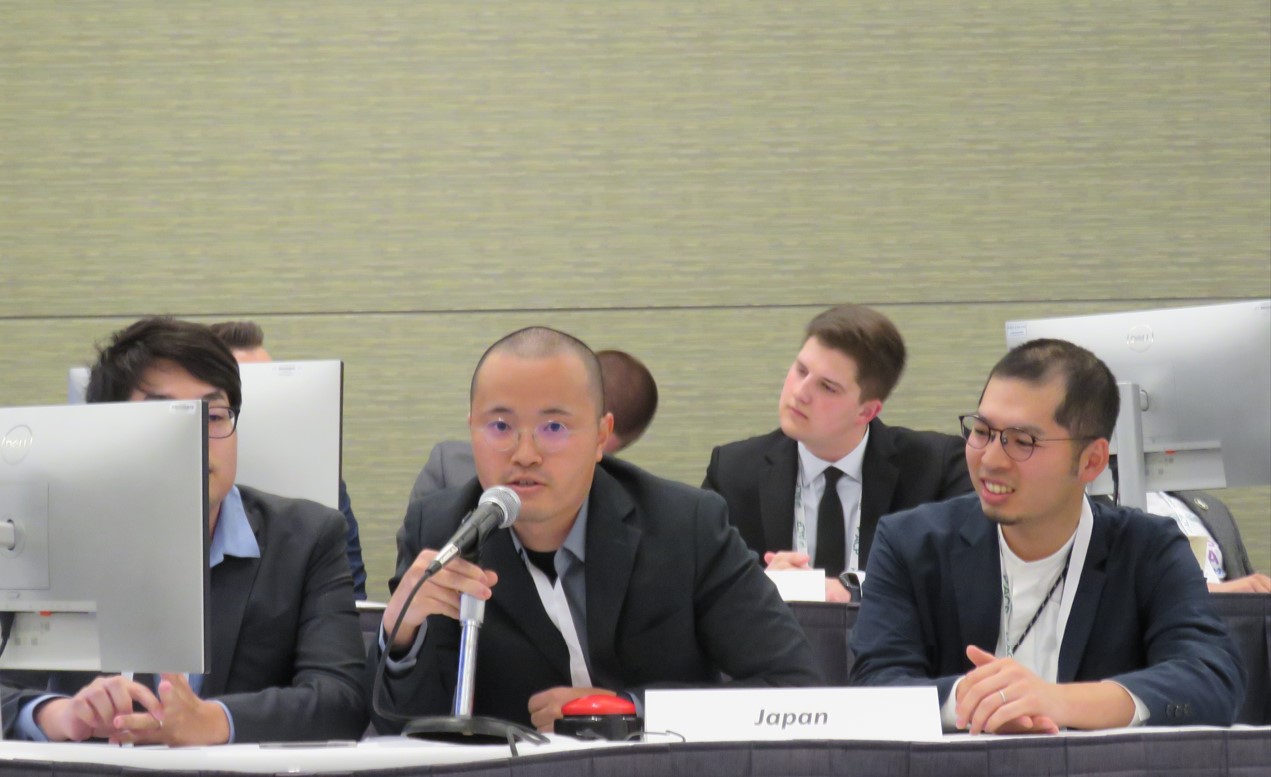Internal Medicine Meeting 2024 Doctor’s Dilemma体験レポート(1)
2024年7月18日
福島県立医科大学附属病院の内藤 翔太郎先生から、Internal Medicine Meeting 2024Doctor’s Dilemmaの体験レポートを頂きましたのでご報告いたします。

先日ボストンで開催されたInternal Medicine Meeting 2024のDoctor’s Dilemmaに、日本チームの一員として参加しました。私にとって初めての国際学会であり、様々なことを感じ、学ぶことができましたが、特に米国レジデントの知識の幅と質に最も感銘を受けました。
Doctor’s Dilemma日本予選は主にMKSAPに準拠した臨床的な問題で構成されています。一方で、本戦ではUSMLE STEP1-2に類似した問題が出題され、より基礎的な内容の問題が多く含まれています。臨床の知識に留まらず、基礎医学や統計学、社会保険制度など、日本のレジデントが疎かにしがちな分野からも問題が出され、それを当たり前のように正答していく米国レジデントのチームには終始圧倒されました。
希少疾患や難治症例の治療では、病態生理に基づいたアセスメントや効率的な文献検索が必要になることがあります。臨床能力を向上させるため、基礎医学や統計学の知識を実用的な知識として日常臨床に応用できるように、知識の復習と補強を行おうと強く思いました。
今回の経験を一言で表せば、「井の中の蛙大海を知らず」に尽きると思います。海外のレジデントの知識や視野の広さを知り、自分の改善点をメタ認知することができた良い機会になりました。今後も機会があれば、海外学会には積極的に参加したいと思います。
I recently attended the Doctor’s Dilemma at the Internal Medicine Meeting 2024 in Boston as a member of the Japanese team. This was my first international conference, and it provided me with a wealth of learning experiences and insights. Among these, what impressed me most was the breadth and quality of medical knowledge possessed by the U.S. residents.
The Doctor’s Dilemma Japan chapter primarily consists of clinical questions in accordance with MKSAP. In contrast, the main competition features questions similar to those of USMLE Step 1 and Step 2 but with a greater emphasis on basic content. These questions extended beyond clinical knowledge to cover areas often overlooked by Japanese residents, such as basic medicine, statistics, and social insurance systems. I was overwhelmed by the U.S. residents who answered these questions correctly and effortlessly, as if it were second nature to them.
Treating rare diseases and difficult cases sometimes requires assessments based on pathophysiology and efficient literature searches. This realization highlighted for me the importance of strengthening my foundational knowledge in basic medicine and statistics. By doing so, I can enhance my clinical skills and apply this practical knowledge more effectively in my daily practice.
Reflecting on my experience, if I had to sum it up in one phrase, it would be “a big fish in a small pond.” This conference was an excellent opportunity for me to understand the breadth of knowledge and perspective of overseas residents and to recognize my own areas for improvement.
This experience has inspired me to continue seeking opportunities for international engagement. I now recognize the significant benefits of participating in overseas academic conferences, which not only broaden my knowledge but also allow me to gain new perspectives and insights. Moving forward, I am determined to actively pursue and participate in such conferences whenever possible, as they are instrumental in my growth as a medical professional.
